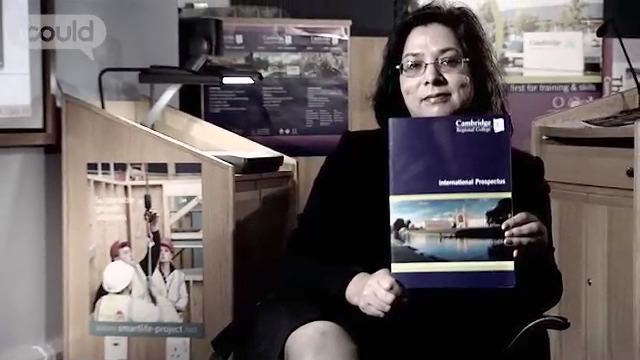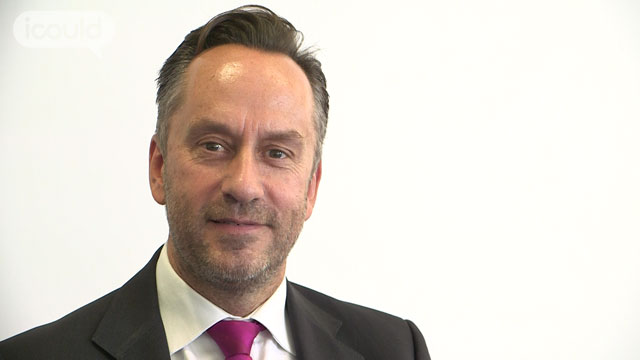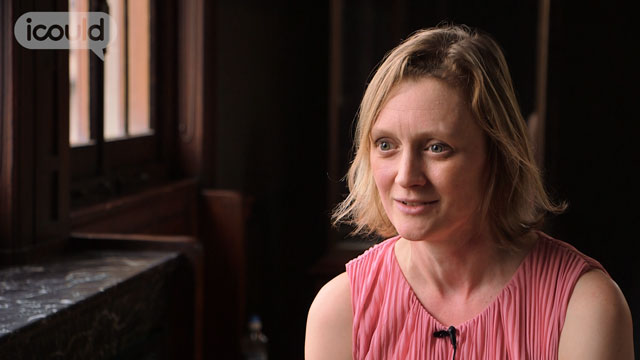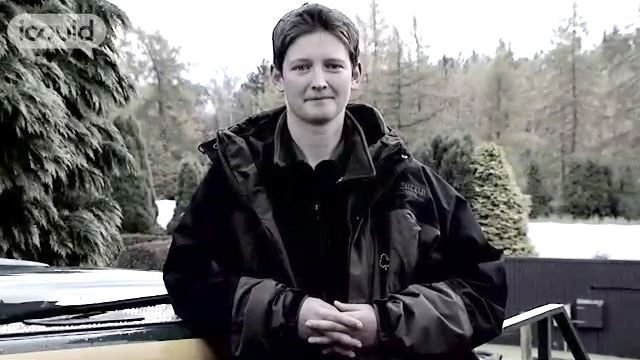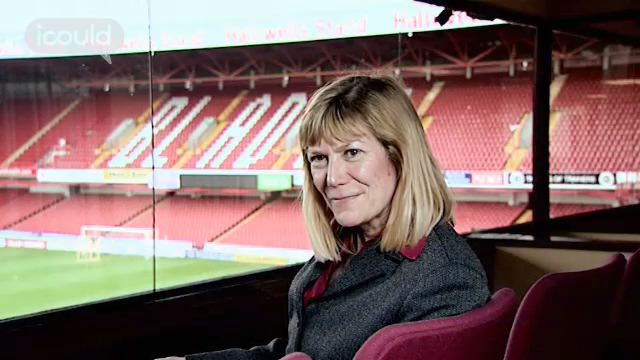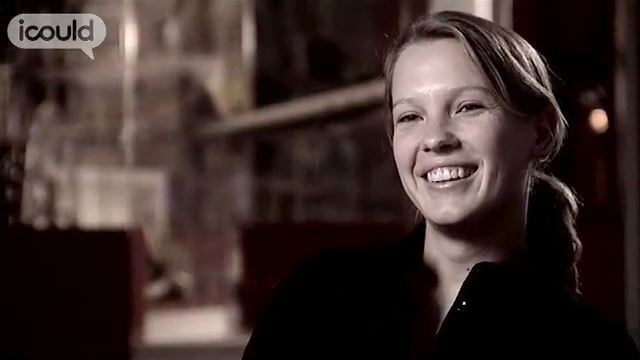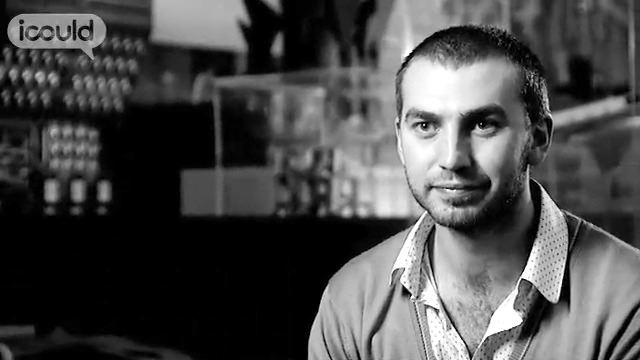Explore: Education
Director of Learning and Visitor Experience
V&A Museum
info Issues viewing the video?
| Time Code | INTERVIEW WITH EMMAJANE AVERY |
| 00:02 | My name’s Emmajane Avery, I’m Director of Learning and Visitor Experience here at the V&A. |
| 00:07 | Well my job entails running learning programmes, the whole of the education programmes for the museum and for the public and also visitor experience. So that is looking after front of house, so the gallery assistants and the volunteers that you see in the galleries. |
| 00:26 | The best thing about working for the V&A is definitely the collection. With this broad range, I mean I don’t think anybody would go into museums who didn’t have a passion for objects, history, collections and the best thing about learning and visitor experience is to be able to bring those collections alive for the public. |
| 00:47 | At school, I didn’t really have a sense about what I wanted to do. I studied a quite peculiar subject at university, called Anglo-Saxon, Norse and Celtic, so it was very early mediaeval history and literature and I didn’t know what on earth I was going to do with that, but museums perhaps was one of the only things perhaps, that you might be able to do with quite an unusual subject like that. So after I’d finished that course, I did an MA in something called museology, so it’s the history of collecting and quite practical museum skills such as putting on exhibitions, running education programmes. It was a very practical course at the University of East Anglia and so then it was quite clear what I wanted to do. |
| 01:34 | So we have an internship programme and an apprenticeship programme that we run here at the museum and we also do a variety of careers days, so because the V&A was established to inspire the next generation of designers, we have fantastic careers days where young people can come and hear designers give talks, workshops, portfolio advice an things like that, so that young people aged 1 to 24 can think about whether they want to enter the creative industries, learn what it’s like to work in the creative industries and hear about pathways into those industries. So we have one a year that’s for secondary school students and one that’s for slightly older students, who have definitely made that choice to go into the creative industries and they’re a little bit further along in their thinking about how they might go about that sort of career. |
| 02:28 | It depends on the roles. Obviously within learning, you know, some people are the project managers, some people are more the administrative side and then we have a whole raft of creative practitioners and volunteers who help out with our programme. |
| 02:43 | You need sort of empathy with a wide variety of public. So in the learning programme we run programmes for adults, students, schools, families, different community groups who might not necessarily be your traditional museum visitor, so you need to be able to get on with a huge, wide range of people. Creativity, we have millions of objects in this collection and every day we’re thinking about how to enliven those objects and how to run interesting activities around them, so that people can find ways into the collection, so you need to be ever creative and inventive. |
| 03:22 | The best advice I could give you about getting into the job in the first place, would be to get some volunteering experience, which is what I did. I think museums look for people who have shown some commitment to working in a museum and so volunteering experience illustrates that commitment. But it also makes you realise what area of museum work you might be interested in and also whether this is really something for you. I remember spending years thinking I wanted to be a journalist, went and worked for two days on a newspaper and hated it, and so it’s really important to try things out and make sure that, you know, those ideals that you have are actually borne out. |
| 03:59 | When I was finishing my studies, I applied for every single museum job going. I applied for things in education, front of house, curatorial, managing, so documenting the collections and then I took whatever job I was offered, which was doing the photocopying in a museum education department and then I got my foot in the door and so the second bit of advice is once you’ve got your foot in the door, make yourself really useful. Your job description might say you’re here to do the photocopying, but I set up lots of projects that were way beyond what I was supposed to be doing and so made myself indispensable. So then they had to offer me a slightly enhanced role. So definitely volunteering, foot in the door and just enthusiasm and perseverance. |
| 04:47 | END |
“Every day we’re thinking about how to enliven those objects and how to run interesting activities around them”. Emmajane always wanted to be a journalist, but after two days work experience at a newspaper realised it was not for her. She volunteered in museums and applied for every museum job going, getting her break photocopying in a museum education department. She now runs the V&A’s education programmes.
More information about Senior professionals of educational establishments
Data powered by LMI For All
£62,920
average salary
The UK average salary is £29,813
30
average weekly hoursThere are 37.5 hours in the average working week
31%
male
69%
female
The UK workforce is 47% female and 53% male
Future employment
Future employment
Description
Job holders in this unit group plan, organise, direct and co-ordinate the administration, support systems and activities that facilitate the effective running of a university, college or other educational establishment.
Qualifications
Entrants usually possess a degree or equivalent qualification and have gained significant relevant experience in the field of education. Specialist training courses and professional qualifications are available.
Tasks
- Considers staffing, financial, material and other short- and long-term needs;
- Arranges for evaluation of management, accounting, information storage and retrieval and other facilities;
- Provides administrative support to the academic team;
- Leads or contributes to decision making processes regarding curricula, budgetary, disciplinary and other matters;
- Controls administrative aspects of student admission, registration and graduation;
- Acts as secretary to statutory and other bodies/committees associated with the educational establishment;
- Drafts and interprets regulations and deals with queries and complaints procedures;
- Organises examinations, necessary invigilations and any security procedures required;
- Arranges for the preparation and publication of syllabuses and other official documents;
- Assists with recruitment, public relations and marketing activities;
- Coordinates and maintains quality assurance procedures.
Employment by region
Top 10 industries for this job
Education
94952
Public admin. & defence
5483
Employment activities
3135
Libraries, etc
2114
Health
1932
Food & beverage services
1910
Membership organisations
1643
Social work
1271
Residential care
1206
Services to buildings
1085
Employment status
Related career stories
⇦
⇨
